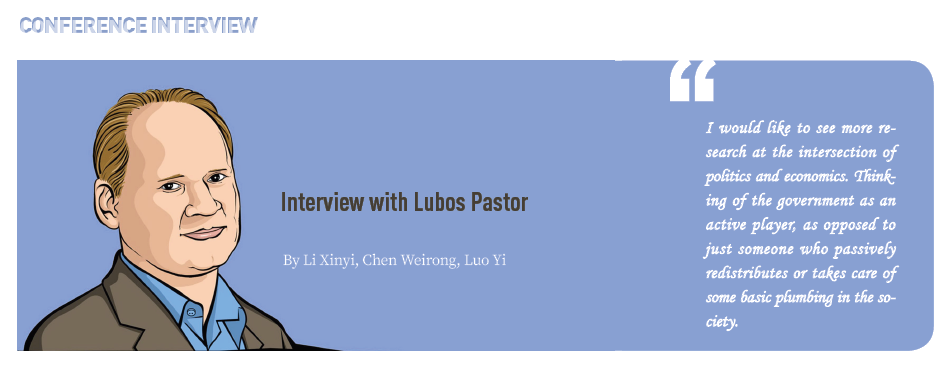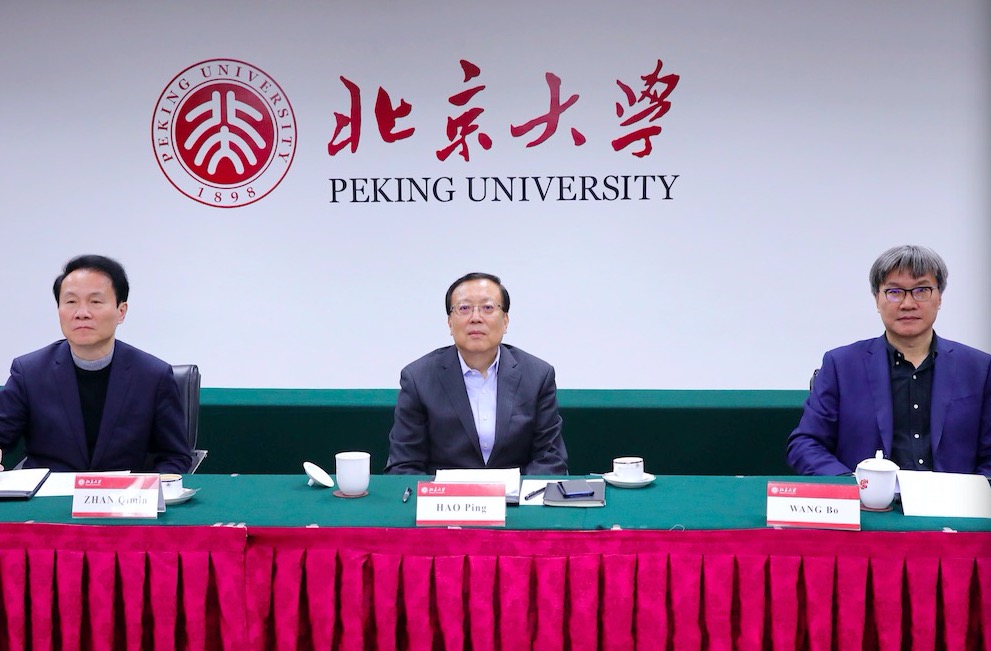A Professor of Finance at Booth School of Business, University of Chicago, Lubos Pastor’s research focuses on financial markets and asset management, addressing topics such as political uncertainty, stock price bubbles, technological revolutions, the size of the active management industry, and portfolio choice. His most cited paper, “Liquidity Risk and Expected Stock Returns,” has been cited over 3,000 times. Professor Pastor presented his study on inequality aversion, populism, and the backlash against globalization at the
Second PHBS Workshop in Macroeconomics and Finance. After the keynote speech, he shared more insights into those areas, and gave suggestions for future research.

Q: Populism seems to be prevalent in the current world, what do you think of this trend?
Lubos: My personal opinion is that it's a little unfortunate that the median voter feels that they have to push back. But I understand why they're doing this. Some people think that this push back is called for; it is the result of some kind of a mistake on behalf of voters. I'm much more sympathetic to the idea that people are pushing back because they feel that some of their legitimate needs have not been satisfied. So, I hope that this push back will lead to changes that will make the world a better place. I think the elites need to listen to people, and there are various things they could do in order to make people happier. So, I hope that you know the bright side of populism, which is that it should make the elites more aware of what people want and hopefully respond with policies that benefit everyone.
Q: Based on your research, do you think in- equality is a major issue from the perspective of economic or financial policy? If so, can increased inequality be viewed as a cost of globalization? Is there any policy design to mitigate such costs?
Lubos: Absolutely. In our model, globalization amplifies inequality: Everybody is benefiting from global growth, but some people benefit more than others. It is like we are all doing better and better over time, and some people are doing much better than others. And if people dislike inequality, then they are pushing back. So, I do think of inequality as a byproduct of globalization. Now, some inequality is good, because it gives people incentives to work hard. You don't want to push inequality to zero; that never worked. Historically, some inequality is good, but too much inequality could lead to resentment. And there are various policies that could reduce inequality. You could think of progressive taxation to begin with. I think some of the best policies, or most effective policies, involve just giving more access to education to people who are left behind. Nowadays, people who are left behind tend to bepeople with a lower skill level or people with less education. If you make it possible for everyone to get good education, I think that could help reduce inequality.
Q: Your paper on inequality is a very important and interesting question in macro finance and asset pricing. Do you have some suggestions for other research topics in this field?
Lubos: I would like to see more research at the intersection of politics and economics. Thinking of the government as an active player, as opposed to just someone who passively redistributes or takes care of some basic plumbing in the society. So, I think issues like political uncertainties are very important. I've written on political uncertainty in the recent past, thinking about what the government will do, whether they will do something, and what's the interaction between that. And for both the economy and financial markets, these are still under-explored topics. Another topic would be to incorporate the financial sector more into the macro economy.
And of course many people have said that one of the biggest problems with macroeconomics was that the financial sector had been missing from macro models, more or less. And so when the financial crisis of 2008 hit, people were kind of not ready. Macro economists were not ready to tell us what to do, because they didn't have the banking sector or because the banking sector was kind of very mechanical in their models. I think the marriage of the two, just the intersection of the two, has to be tighter. Bringing the financial sector into macro models in a realistic fashion is important. And it's also important for finance people to address macro. So, just to summarize, my suggestion is to do more work at the intersection of those to just find a tighter link between macro and finance.
By Li Xinyi, Chen Weirong, Luo Yi
Edited by Priscilla Young and Annie Jin
Published on PHBS Magazine Spring 2020 (Read More)















